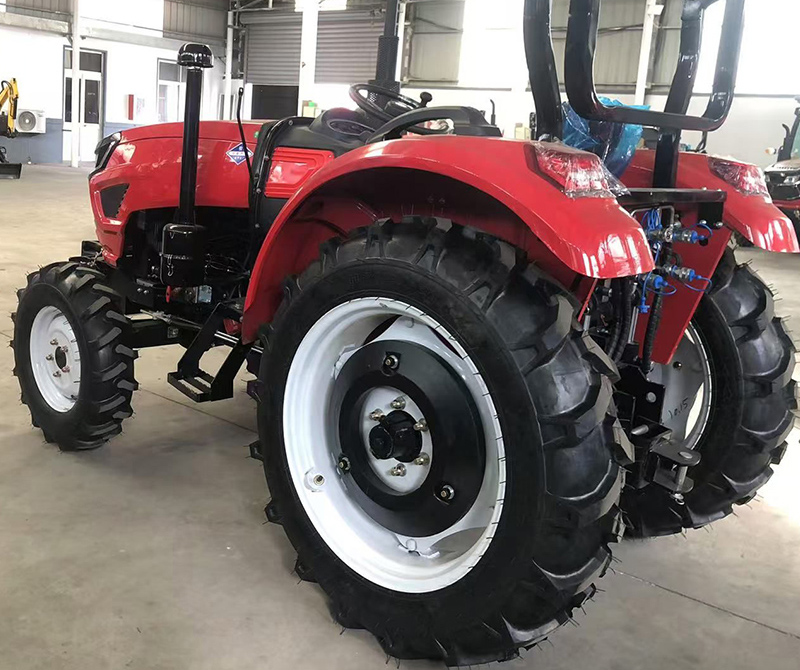Compact Tractors: Why Small-Scale Farms and Gardens Are Embracing This Powerful Revolution
Compact Tractors: Why Small-Scale Farms and Gardens Are Embracing This Powerful Revolution
In today’s fast-evolving agricultural landscape, one piece of equipment is redefining what it means to be efficient, affordable, and sustainable — the compact tractor. Once seen as a niche product for hobby farmers, compact tractors have become essential tools in small-scale agriculture, landscaping, and gardening across Europe, North America, and the Middle East. Their rise reflects a broader movement toward smarter, more adaptable farming technologies that prioritize precision, productivity, and environmental balance.
1. The Rise of Compact Tractors in Modern Agriculture
Small farms play an increasingly critical role in the global food supply chain. In regions such as Europe and the Middle East, where land fragmentation and urban agriculture are on the rise, the need for smaller, efficient machines is greater than ever. Compact tractors offer the perfect balance of power and maneuverability, fitting easily into narrow rows, orchards, and greenhouses where large tractors simply can’t operate effectively.
Their growth has also been fueled by the modernization of family farms and the increasing number of urban and peri-urban agricultural projects, where mobility and versatility are key.
Q: Why are compact tractors becoming more popular in small-scale farming?
A: Because they combine the power of traditional tractors with compact size, reduced fuel consumption, and multifunctionality — making them ideal for small plots and diverse operations.

2. Design Innovations and Engine Efficiency
Today’s compact tractors are no longer “scaled-down” versions of larger machines; they are technologically advanced units equipped with efficient diesel or hybrid engines, power take-off (PTO) systems, and hydraulic attachments. Many brands have integrated AI-assisted monitoring systems, real-time fuel tracking, and ergonomic cabin designs to reduce operator fatigue.
In the Middle East, where temperatures and dust present major challenges, compact tractors with improved air filtration, cooling systems, and reinforced components are becoming essential for sustainable operation. Meanwhile, European models focus heavily on low emissions and EU environmental compliance, supporting the transition toward greener farming.
3. Versatility Across Agricultural and Non-Agricultural Fields
One of the biggest advantages of compact tractors is their multi-functionality. They can perform dozens of tasks — from tilling and mowing to snow removal and light construction. This adaptability makes them indispensable for farmers, landscapers, and even municipalities.
In Europe, for example, compact tractors are often used in vineyards, orchards, and greenhouses, where precision is crucial. In contrast, in the Middle East, they are deployed in irrigation systems and desert agriculture projects, helping improve productivity in harsh environments.
Q: Can a compact tractor handle the same tasks as a full-sized one?
A: For most small and medium-scale applications, yes. Compact tractors are designed to handle plowing, mowing, hauling, and land preparation efficiently without requiring heavy-duty fuel consumption or space.
4. The Economic Advantage for Small Farmers
Affordability is a major factor driving the popularity of compact tractors. While traditional tractors can cost tens of thousands of dollars, compact models are available at a fraction of the price, often with lower maintenance and fuel costs.
This makes them particularly appealing to first-time farmers, small business owners, and community farming projects. Their lower total cost of ownership allows for quicker ROI and greater accessibility to modern farming tools.
5. Eco-Friendly and Sustainable Farming Impact
As global agriculture faces pressure to reduce carbon emissions, compact tractors are stepping up as eco-efficient machines. Manufacturers are incorporating electric and hybrid engines, biofuel compatibility, and energy-saving technologies. Some models can even integrate solar-powered charging systems, particularly valuable in sunny regions like the Middle East and North Africa.
Q: Are compact tractors environmentally friendly?
A: Yes. Modern models prioritize low fuel consumption, reduced CO₂ emissions, and soil-friendly operation. Many brands are now releasing electric or hybrid compact tractors.
6. Compact Tractors in Gardening and Landscaping
Beyond traditional agriculture, compact tractors have found a thriving market in gardening, landscaping, and estate management. Their small turning radius and adaptability to various attachments — such as mowers, loaders, and tillers — make them ideal for maintaining parks, golf courses, and private gardens.
7. Technology Integration and Smart Features
The integration of smart technology is another major factor behind the growing appeal of compact tractors. Many models now include GPS-based guidance systems, IoT connectivity, and automated steering for precision farming.
8. Global Market Trends and Regional Growth
Market research shows that the global compact tractor market is expected to grow steadily over the next decade, particularly in Europe, North America, and the Middle East. The demand is driven by small farm mechanization, urban agriculture, and the adoption of smart farming systems.
9. Future Outlook — The Compact Tractor Revolution
Looking ahead, the evolution of compact tractors will focus on automation, renewable energy integration, and enhanced user experience. Manufacturers are exploring AI-assisted plowing, electric propulsion, and fully autonomous models that can perform tasks with minimal human supervision.
10. Conclusion
The popularity of compact tractors in small-scale farms and gardens is not just a trend — it’s a reflection of the global shift toward sustainable, efficient, and technology-driven agriculture. These machines embody the essence of modern farming: compact yet powerful, affordable yet sophisticated, and eco-conscious yet practical.
5. Get Your Personalized Solution Now
→ Call the selection hotline: +86 158 5359 8030 (also supports accessory customization inquiries).








